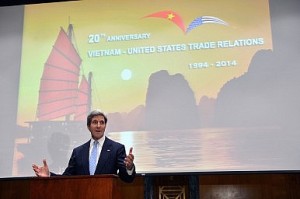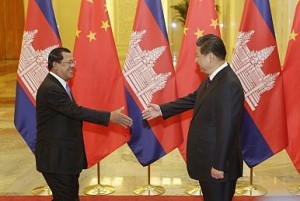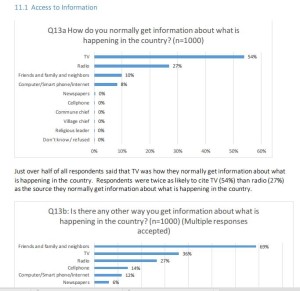Leadership
now browsing by category
Trans-Pacific Partnership: Do it for Vietnam
Trans-Pacific Partnership: Do it for Vietnam

John Kerry Attends a Reception in Honor of the 20th Anniversary of U.S.–Vietnam Trade Relations
Image Credit: Flickr/ U.S. Department of State
Tyler Cowen, the prolific economist behind Marginal Revoution (a blog I’ve read for over half-a-decade and recommend), has a unique case in favor of the Trans-Pacific Partnership that relies on simple utilitarian logic. Simply put, the benefits of the TPP coming into effect outweigh the costs in a huge way. Particularly, the benefits for one country—Vietnam—are huge. In fact, Cowen makes that case that the benefit to Vietnam would be so huge that any costs borne by U.S. interest groups and constituencies are marginal. The benefits to Vietnam alone should make the TPP a “no brainer” of an agreement.
The economic reason is simple. The TPP, while it is many things, is at its core a tariff-effacing trade agreement for among its 12 signatories. Vietnam, meanwhile, is not only a poor country, but a country that remains at odds with the values and principles guiding the primary stakeholder behind the TPP: the United States. Vietnam, a Communist country, has undertaken some liberalization on tariffs, “but since then has done some backsliding,” writes Cowen. Specifically, after its entry into the World Trade Organization (WTO), Vietnamese tariffs “on products of interest” to the United States drastically, only to slightly increase them to come in line with the maximum of the range allowed under WTO bindings (see the U.S. Trade Representative’s report on Vietnam here).
Given that Vietnam does a lot of trade with the United States and that the TPP will slash major trade protections on the Vietnamese market, it follows that Vietnamese goods will be particularly competitive in a post-TPP context. In support of these claims, Cowen cites a simulation study by the Peterson Institute on International Economics that demonstrates the same (i.e., that Vietnam, of all countries party to the TPP, stands to benefit the most). A particularly telling statistic for the potential gains for Vietnam in a zero-tariff scenario is the following: in 2012, 34 percent of U.S. apparel imports came from Vietnam, amounting to $7 billion. In a zero-tariff scenario, these imports are suddenly far more competitive.
RCAF role is to protect the Cambodian people

RCAF role is to protect the Cambodian people
In all democratic nations, military expenditures, which include current and capital expenditures for the armed forces, derive from the national budget for the central government.
Such budget is approved by parliament for the national institution in charge of defending the nation’s territory and sovereignty – the Ministry of Defence.
In all democratic nations, the national armed forces serve the people.
The full allegiance of the armed forces goes to the nation, not to a group, a political, party nor a person.
The men and women who serve the armed forces of a democratic nation are well equipped, fit, paid and trained for military operations.
Their well being and the well being of their family members during the time of service and their pensions for retirement or disability and medical care should be the responsibility of the government in honour of their service to the nation.
That honour is also bestowed upon the service men and women by the people.
The Royal Cambodian Armed Forces (RCAF) is the only army to defend the Kingdom of Cambodia with His Majesty the King as its Supreme Commander according to Article 23 of the Constitution.
For these reasons, it is not acceptable for the Minister of Defence of the Kingdom of Cambodia to solicit private donations from companies to support the armed forces’ increased salaries, food and military supplies.
It is truly alarming to hear the Minister of Defence announce at a workshop recently held at the Council of Ministers that past private donations were spent on purchases of arms.
It should also be noted that at the same meeting, the deputy commander of RCAF, four-star General Chea Dara claimed that “ the army belongs to the Cambodian People’s Party”.
Political Paradigm of Pragmatism from the Khmer Youth part 30
Political Paradigm of Pragmatism from the Khmer Youth part 30
This part (30), the author Mr. Sophan Seng didn’t traditionally describe about the policy platform for political parties for the upcoming national election 2017 and 2018 as planned. He is articulating the four outstanding political events in Cambodia.
1. The government rushed to amend the law on civil society and NGOs (LANGO) without conducting proper consultations and participation from all stakeholders is a trouble for the nation. Parliament and Senate that are well-known for submission to the government or lacking independence, have unanimously approved the law. This LANGO is believed to impeding the independence and effective tasks of civil society that has played important role in democratization and nation-building of Cambodia.
2. The arrests and injail of those 11 political activists of the CNRP is a set-back political development in Cambodia. Hun Sen has no faith in his new political mean on culture of dialogue while Sam Rainsy, his counterpart, has confidently believed the culture of dialogue shall pave strong foundation for collective interests of Cambodia in a long run.
3. The borderline disputes between Cambodia and Vietnam have emerged as the continual conflicts that are poorly responded by the Cambodian government. Cambodian government has conducted self-hostaged border demarcation policy with Vietnam by accusing their own citizens as extreme, ultranationalism, or irrational on Vietnam’s encroachments. These accusations are in contrast with Vietnam who have encouraged their citizens along the borderline to protect their property.
4. International geopolitics changes among those superpower countries is very pressing. Vietnam’s official visit to strengthening tie with Obama administration has enabled Vietnam a boost in strategy to confront with China regarding the rifts of Sprately Island. Other Obama’s friends will approve the concert. Hence, Cambodia has moved closer with China that is believed to repeat past trauma if Cambodia is not managing this triangle relationship properly.
These four political events have heated up Cambodia as a small and fragile state. While the foreign policy requires strength within domestic politics, Hun Sen administration is seems lacking responsive and well-planned domestic policy especially to ensure unity. The amendment of LANGO law and the incarceration of those 11 political activists are showing Hun Sen’s non-visionary sight for Cambodia during this international geopolitics tension.
To bring back confidence and unity, as many believed, those 11 political prisoners must be immediately released, as the author has solemnly appealed for.













